At least 19 people have been killed in Nepal amid fierce clashes between protesters and police over a government social media ban.
Thousands from Generation Z – those currently in their teens and 20s – protested the ban on 26 social media platforms, including Facebook, YouTube, and X.
Police have been accused of “firing indiscriminately” at demonstrators, who authorities say broke through a barricade to force their way into capital Kathmandu’s parliament complex. An ambulance was set on fire and objects were hurled at rows of riot police stood in front of the building.
Protesters marched through the city carrying the national flag and placards bearing slogans like “Shut down corruption, not social media”, “Unban social media”, and “Youths against corruption”.
At least 100 people including 28 police officers have been injured in the chaos and are receiving medical treatment, police officer Shekhar Khanal said.
"The police have been firing indiscriminately," one protester told the ANI news agency. “(They) fired bullets which missed me but hit a friend who was standing behind me.”
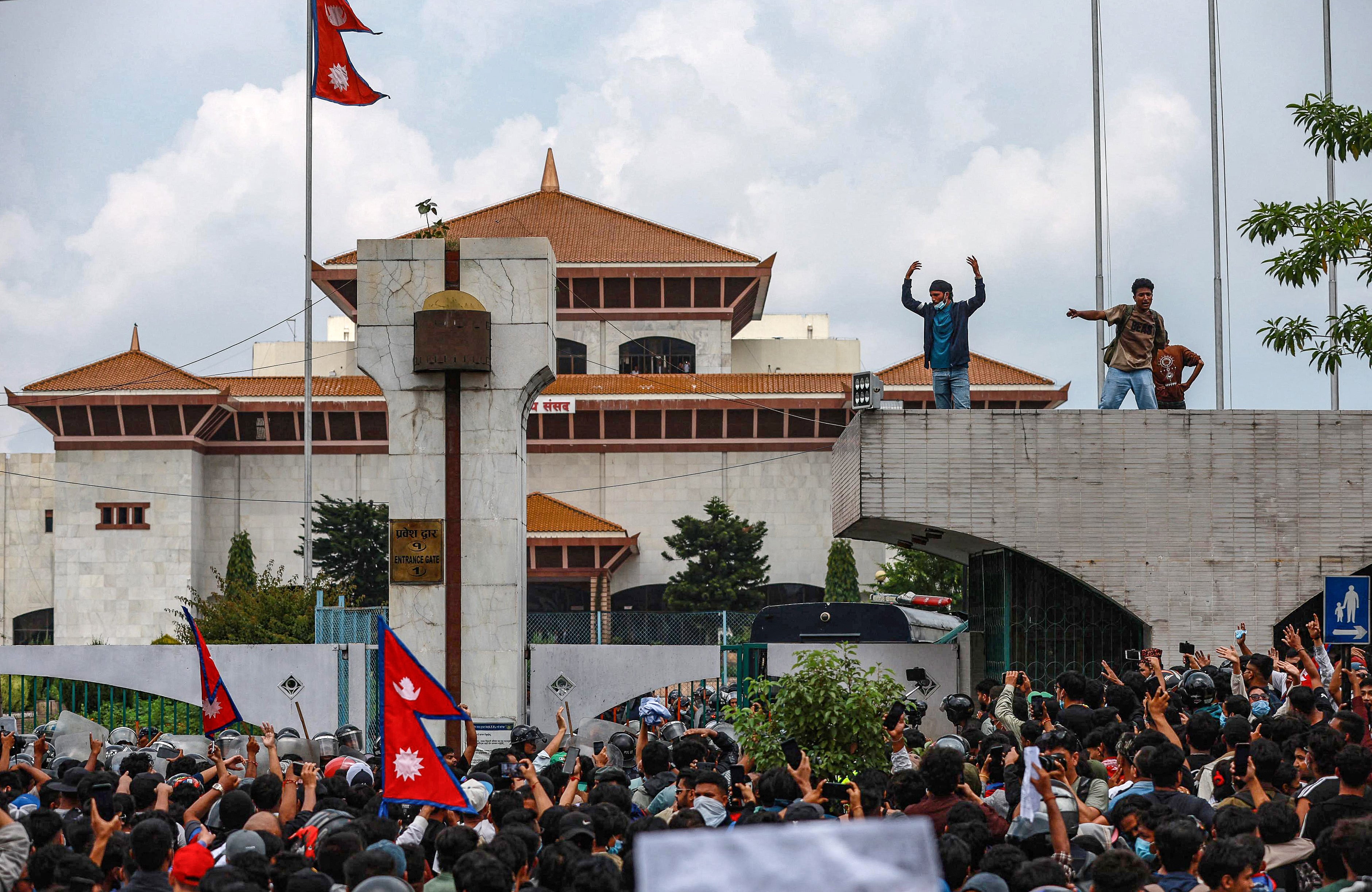
Ekram Giri, a spokesperson for Nepal’s parliament, said some protesters managed to enter the parliamentary grounds but did not reach the main building. Police pushed them back, and they are now gathered on the road outside.
A government spokesperson said the army had been deployed to enforce law and order in areas of Kathmandu affected. Prime Minister K.P. Sharma Oli also called an emergency cabinet meeting to discuss the unrest.
“We have imposed a curfew which will remain in force until 10.00pm local time to bring the situation under control after protestors began to turn violent,” Muktiram Rijal, a spokesperson for the Kathmandu district office, told Reuters. Police had orders to use water cannons, batons and rubber bullets to control the crowd, Mr Rijal said.
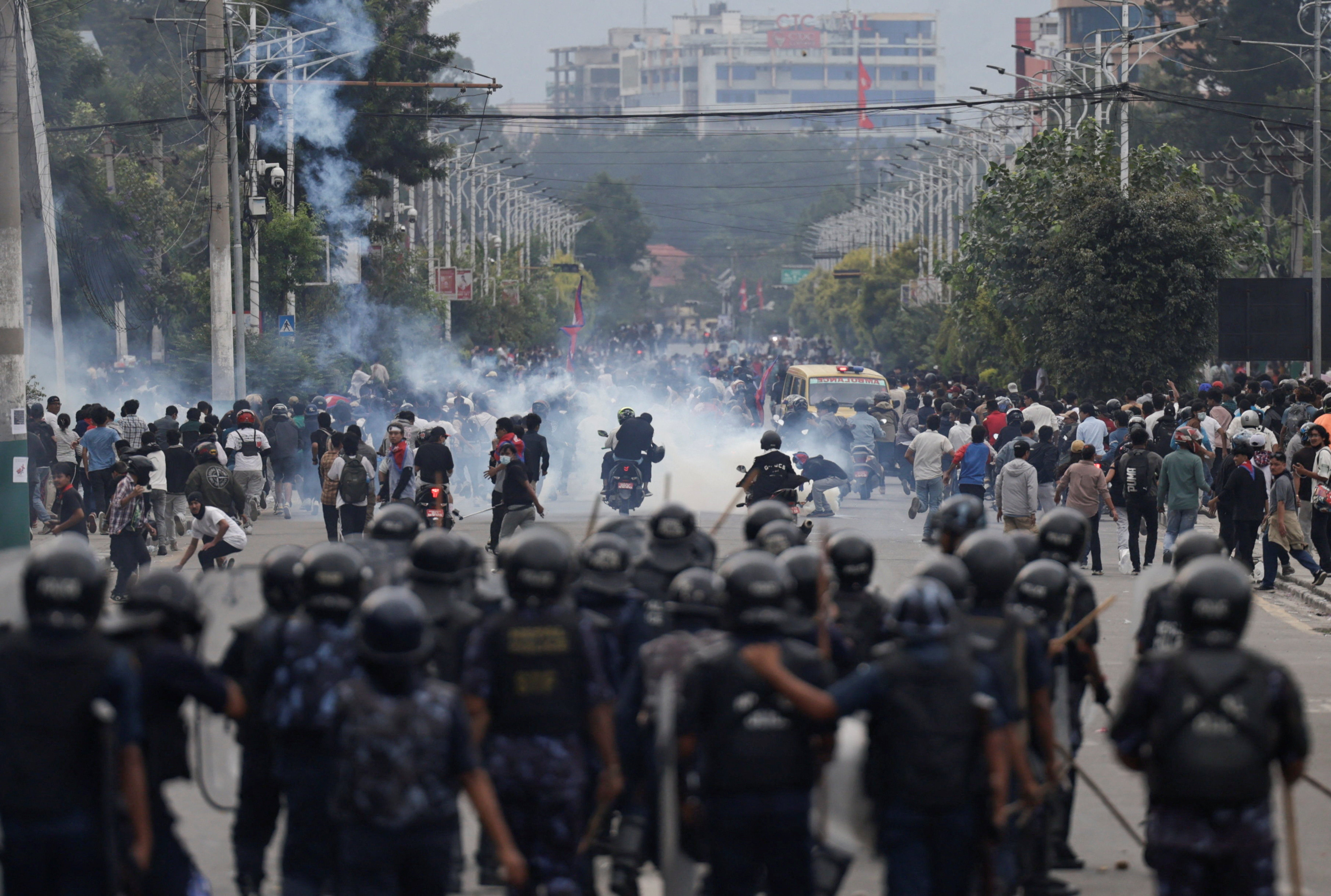
The protests that started in the capital have spread nationwide to other cities, including Biratnagar, Bharatpur, and Pokhara. Demonstrators say they are also now about more than just the social media ban.
“We were triggered by the social media ban, but that is not the only reason we are gathered here,” Yujan Rajbhandari, a 24-year-old student, was quoted as saying by AFP. “We are protesting against corruption that has been institutionalised in Nepal.”
Ikshama Tumrok, a 20-year-old student, said she was protesting against the government’s “authoritarian attitude”.
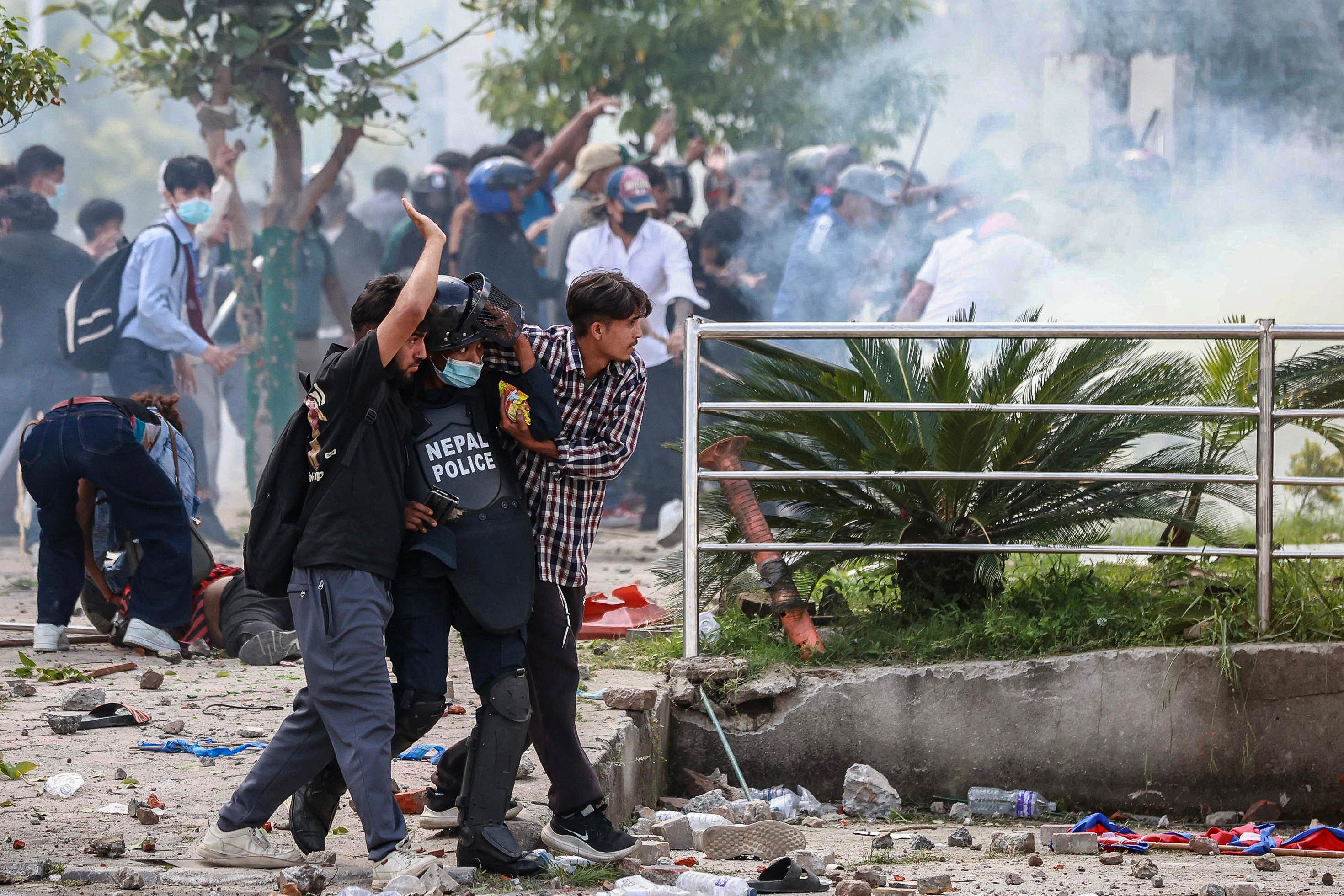
“We want to see change. Others have endured this, but it has to end with our generation,” she told the outlet.
"This is the protest by the new generation in Nepal," another protester told ANI.
Nepal’s government has blocked 26 major social media platforms, including WhatsApp, Facebook, Instagram, YouTube, and LinkedIn, after they failed to meet new registration rules requiring a local representative and a license.
The ban, effective since last Thursday, disrupted communication across the country, especially affecting families with relatives working abroad and raising fears over press freedom and the tourism sector.
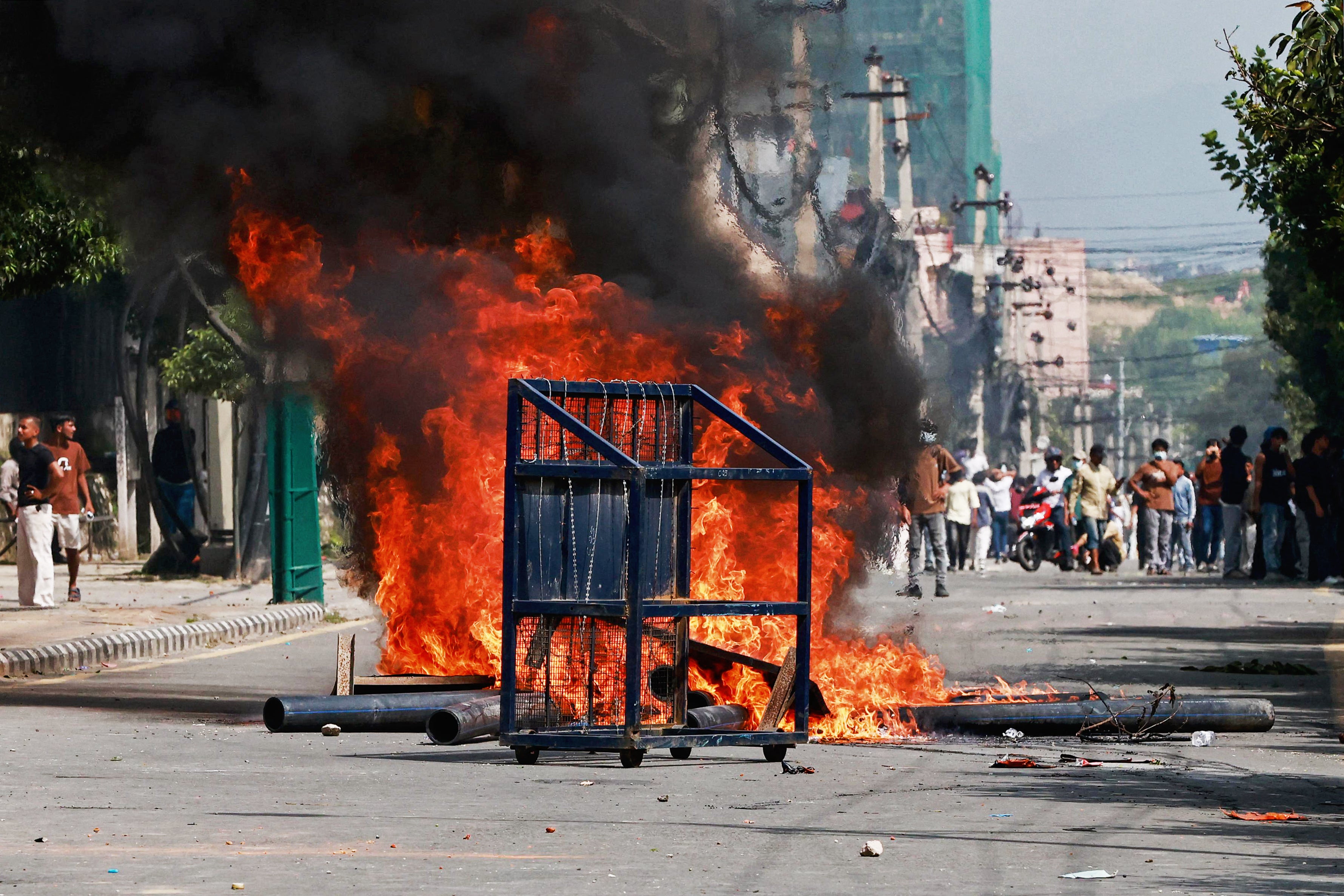
The government has also accused some social media users of making fake accounts to spread hate speech, circulate false information, and engage in fraud and other illicit activities.
Critics argue that Prime minister Oli has long sought to control speech in Nepal but was previously checked by protests, including from his own party.
A temporary TikTok ban in 2023, lifted after the app registered with the government, set a precedent.
Mr Oli is now accused of leveraging a recent Supreme Court directive requiring media platforms to register and be accountable for false content to enforce broader control over social media.
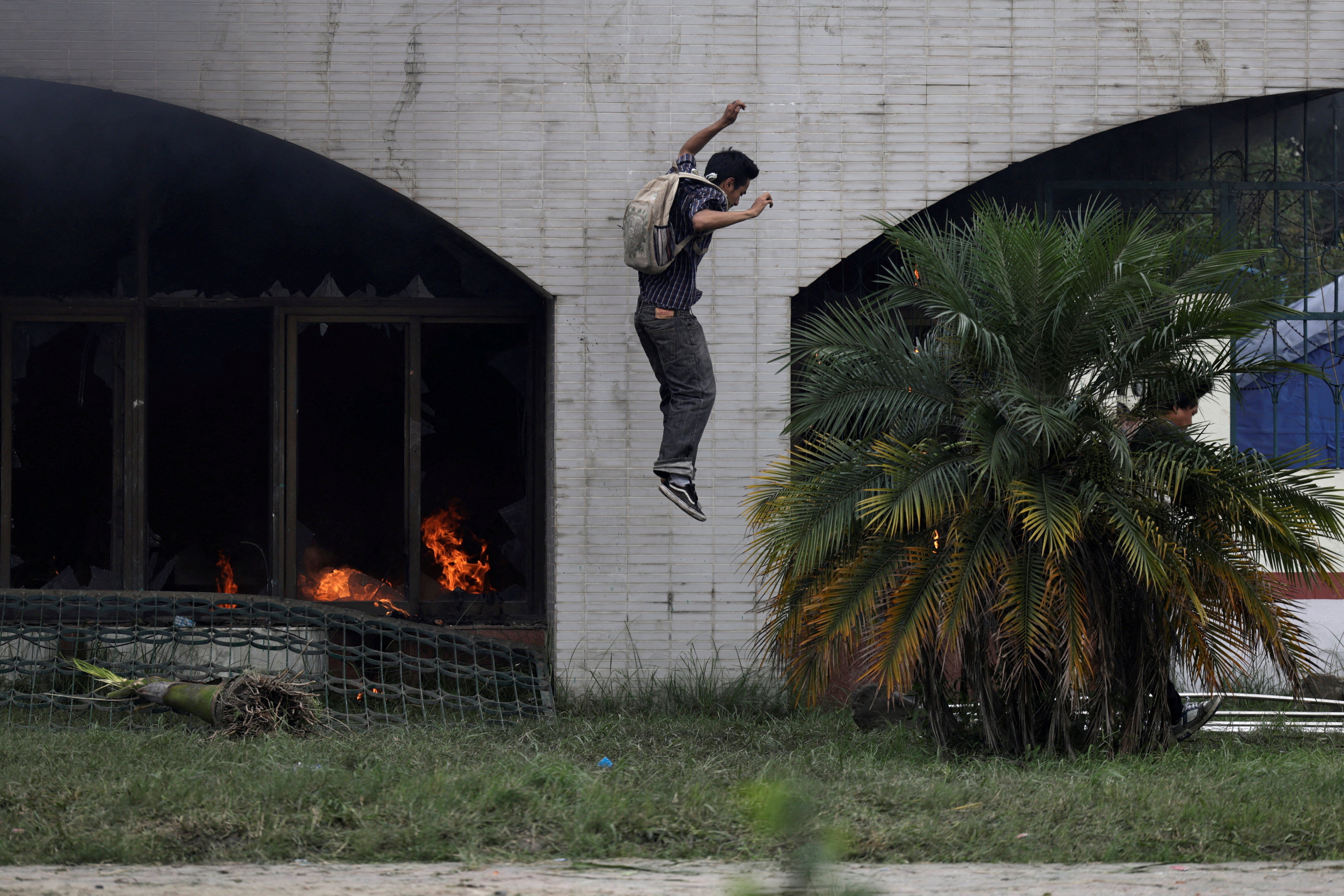
“Nepal’s sweeping ban on social media sets a dangerous precedent for press freedom,” Beh Lih Yi, the regional director for the Committee to Protect Journalists, said in a statement.
“The government must immediately rescind this order and restore access to social media platforms, which are essential tools for exercising press freedom.”
About 90 per cent of Nepal’s 30 million population are internet users.
What’s happening in Nepal? How social media ban sparked protests over corruption
Nepal prime minister resigns over deadly anti-corruption protests
Nepal scraps social media ban ‘to address demands of Gen-Z’ after 19 dead in protests
Taliban urged to lift female aid worker restrictions after earthquakes
Nepal’s eight-year-old living goddess leaves palace to bless worshipers
At least 15 dead after bus plummets 1,000ft down cliff in Sri Lanka







